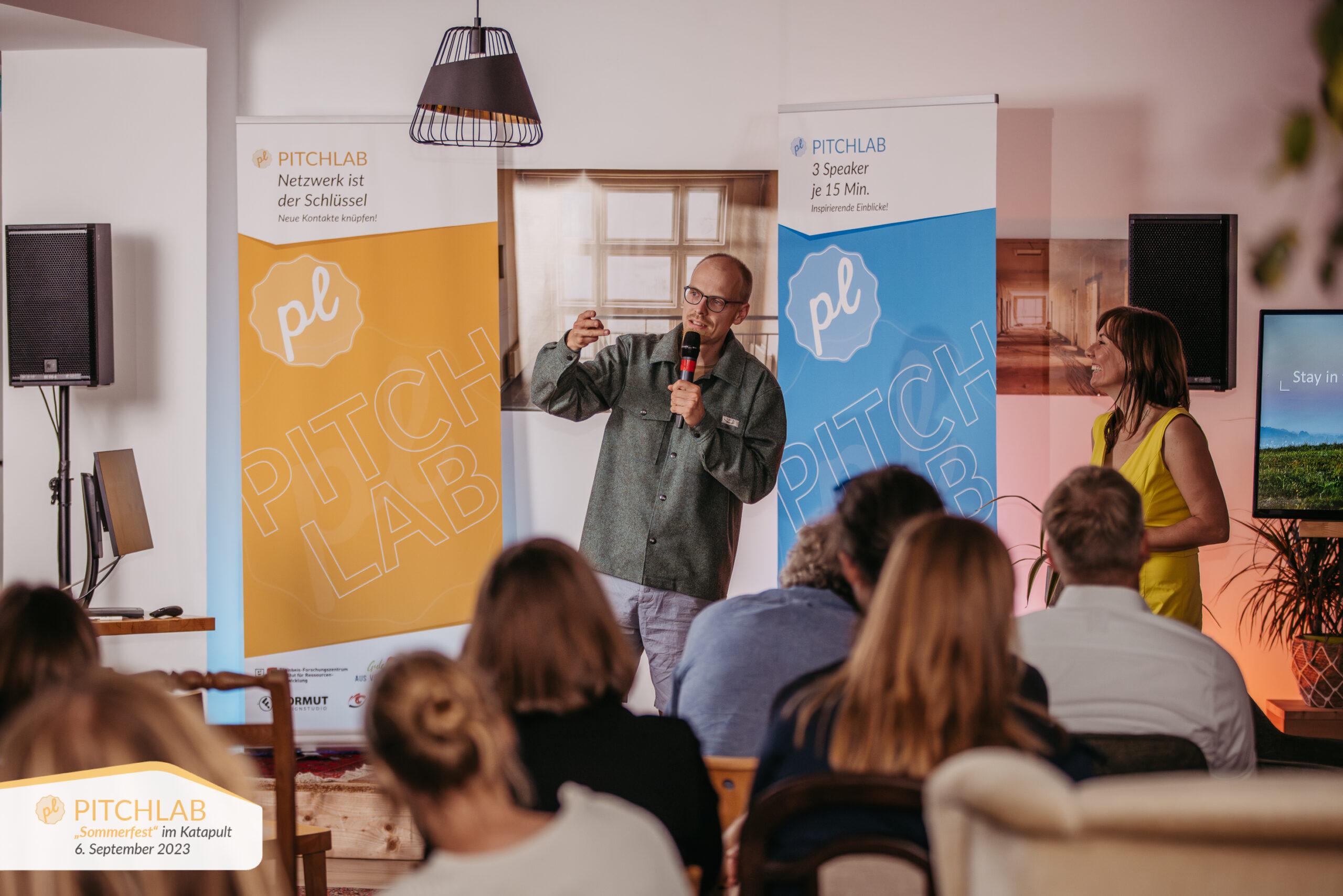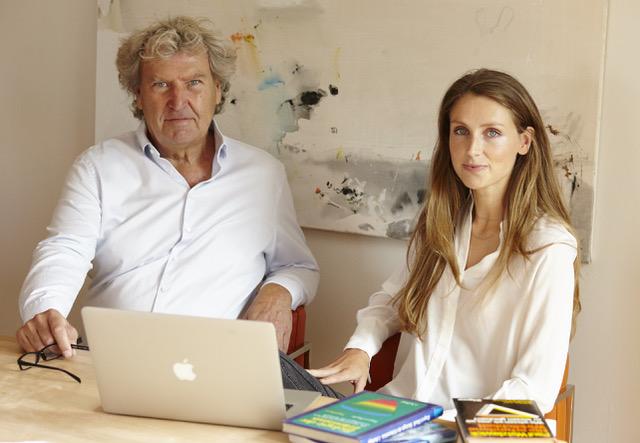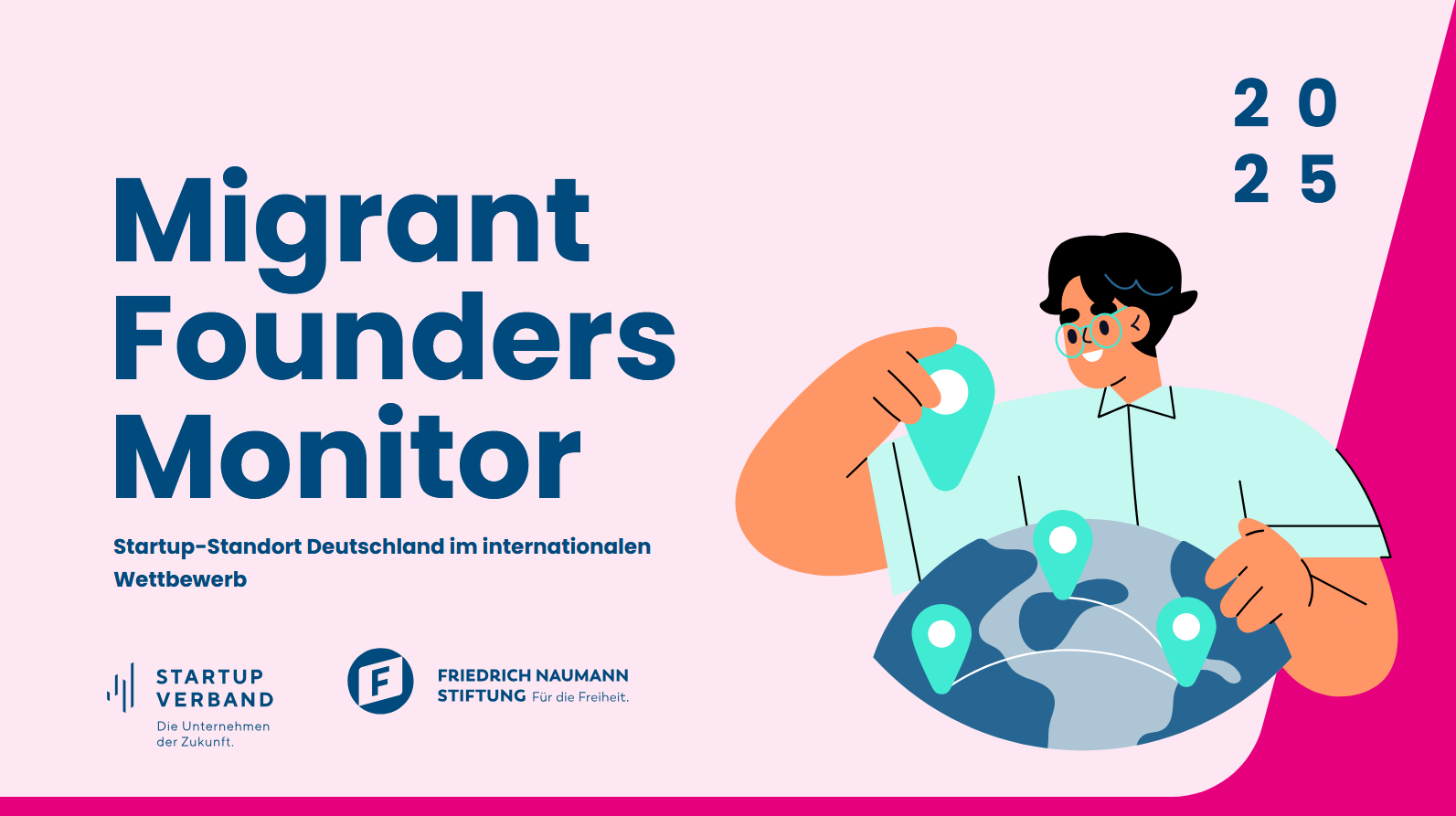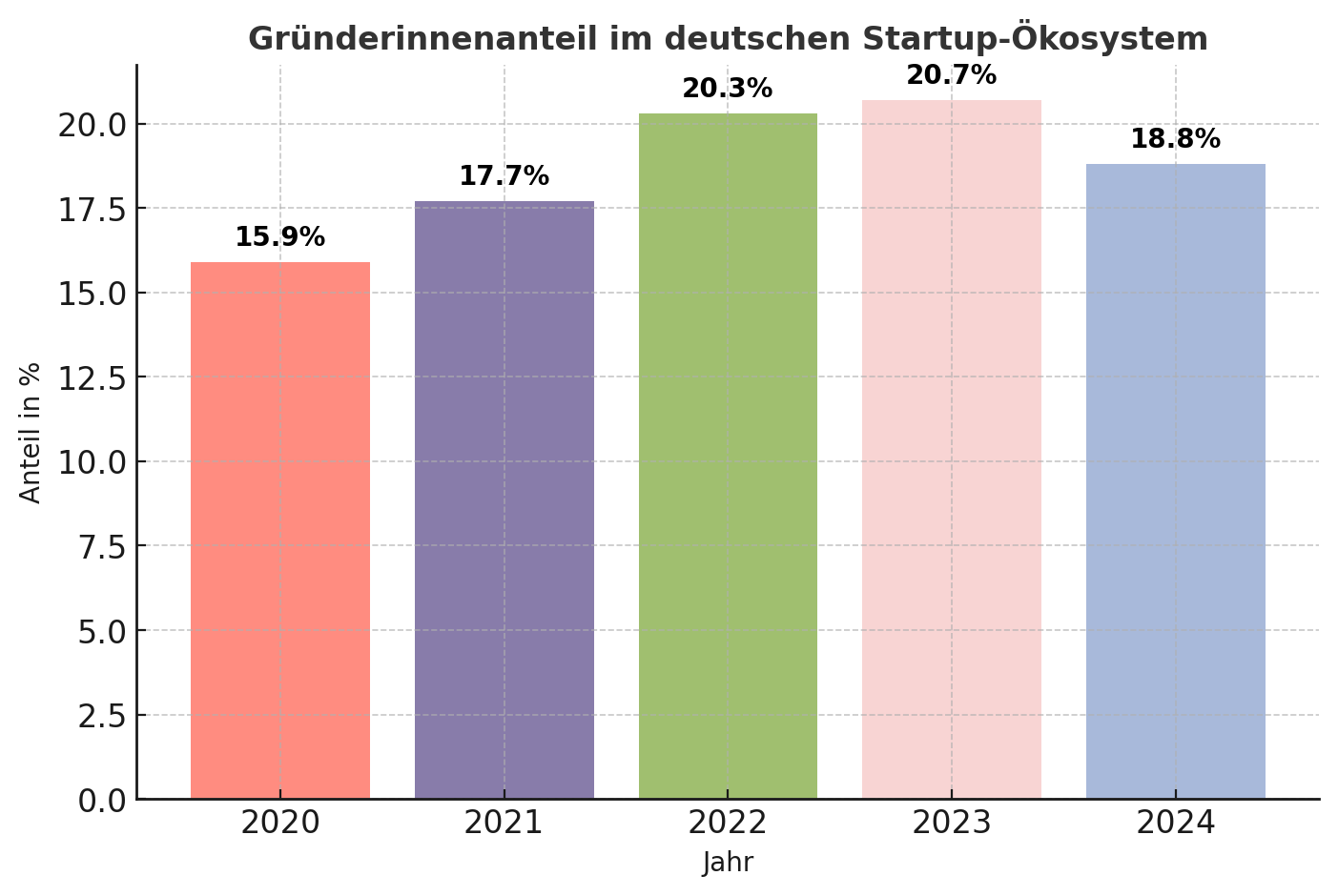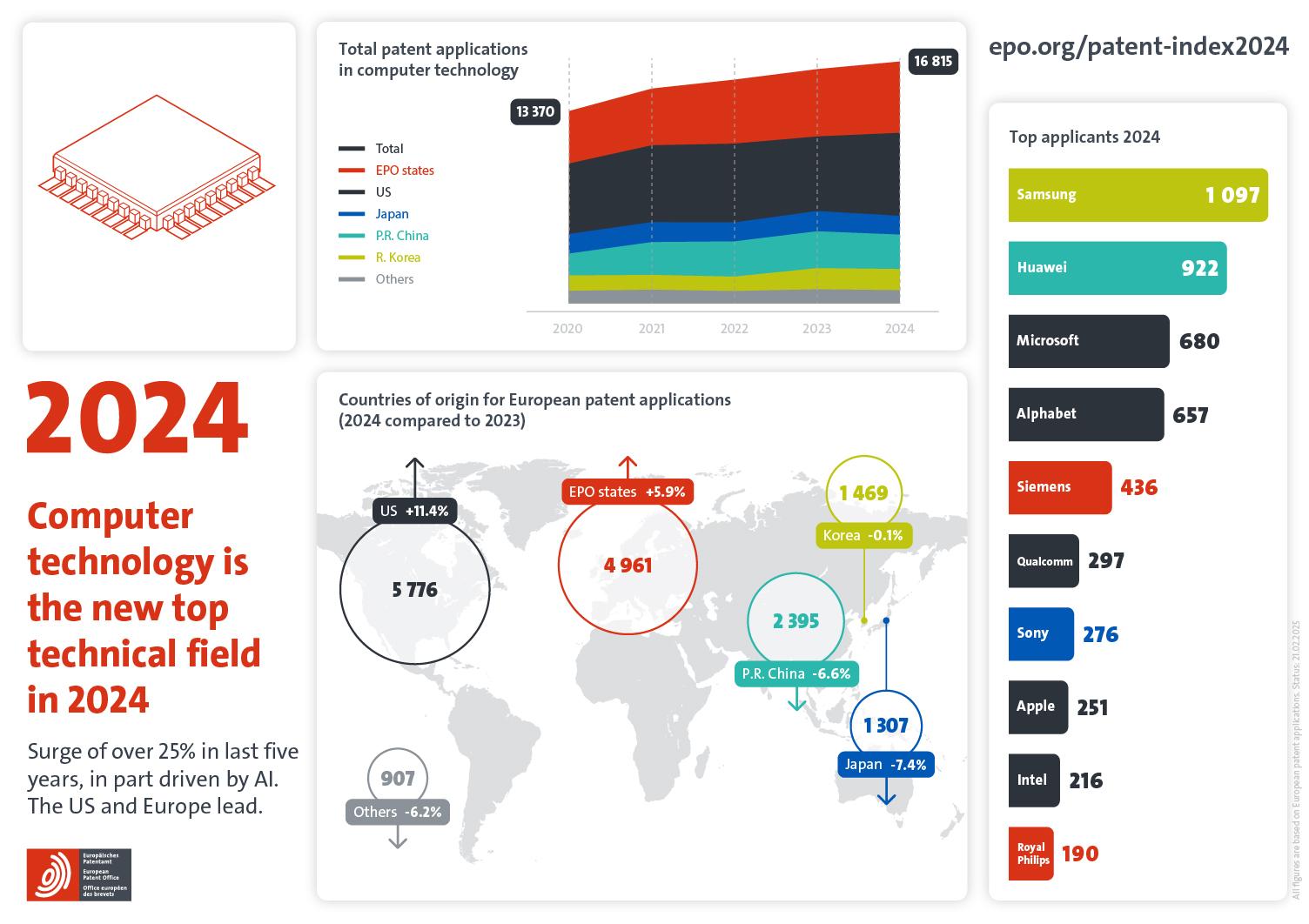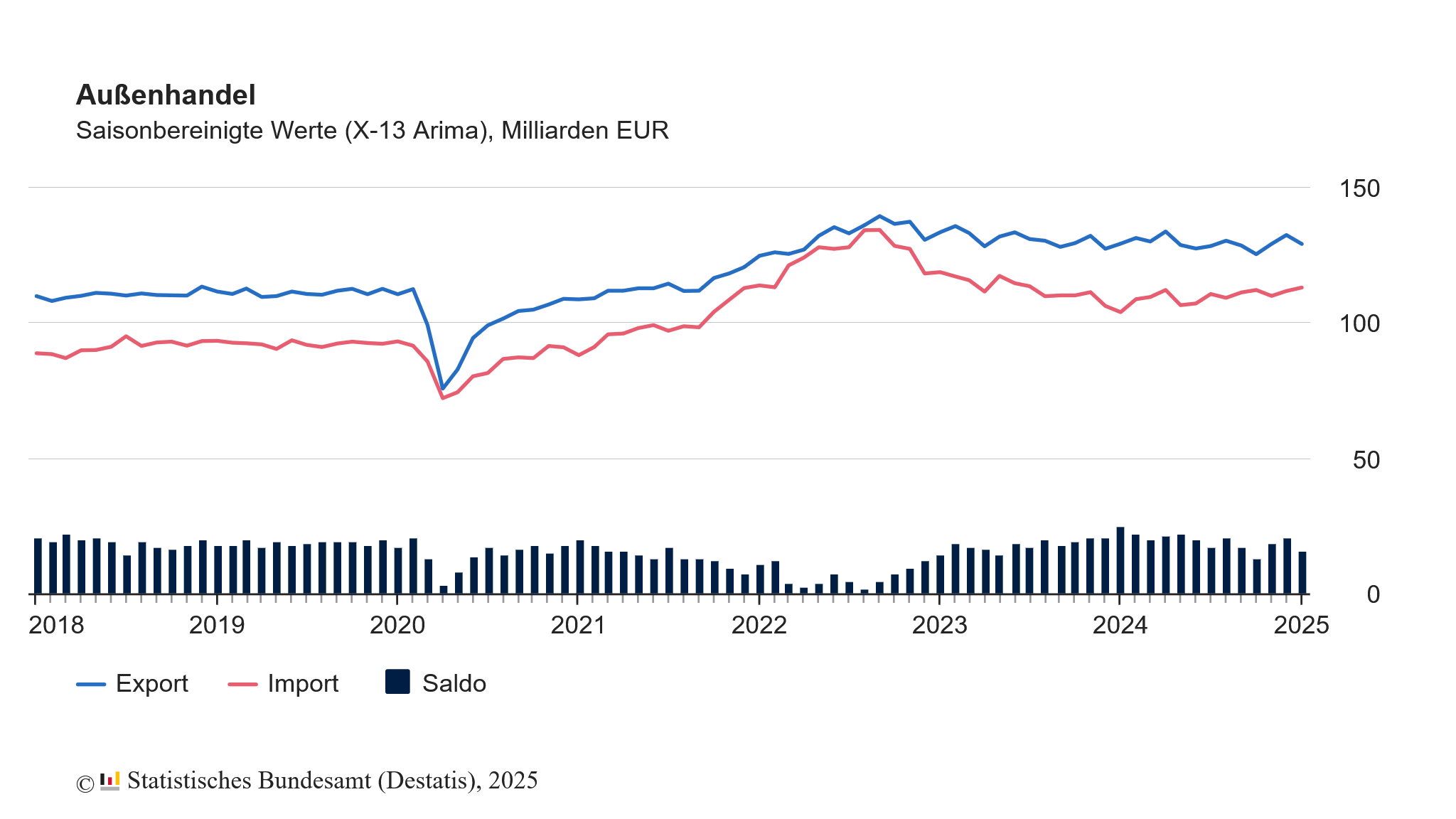That's enough, we've talked enough!

Why I can no longer hear the call for more female founders.
We need more female founders! For years, this phrase has automatically come up when talking about the German start-up ecosystem. Hardly a week goes by without me being invited to speak on a panel, often made up entirely of women, about the lack of female founders. All stakeholders have spoken out on the topic in turn, and numerous studies now show that more diversity is not only good for the economy, but also benefits the balance sheet: Not only in terms of gender, but also in terms of age and cultural background, mixed teams have been proven to lead to better results.
So you might think that the penny has dropped, because after all, the topic of "female founders" is being discussed up and down. But that's exactly my point: we talk a lot and don't manage to get real measures on the road that have a concrete effect. So the awareness of the problem among those responsible is superficial at best. When it comes to implementation, not much has happened - at least in my perception.
Yes, there are individual VCs that are now even committed to supporting female founders in their statutes - better ventures, for example. But unfortunately this is an exception. Women (teams) at the top of start-ups are still a rarity and will remain so in the short term. Not because they can't do it or don't have the right ideas, but simply because they receive less capital. Instead of just going on and on about the importance of female founders for the economy, we - politicians, VCs, entrepreneurs and parents alike - must finally let actions and results speak for themselves.
"Sticky habits" and deep-seated bias
Patterns of thought with which we have been socialized or structures into which we have grown cannot usually be changed overnight. What I would like, however, is for us to make an effort to look behind the scenes of these mechanisms in order to discover our own blind spots. It has been proven, for example, that people like to surround themselves with things that they can assess and that are familiar to them. Logically, because this minimizes risks in many respects. This is also one of the reasons why investors instinctively prefer to finance founders who went to the same university and come from the same network, politicians prefer to pursue "general" (but in reality male-dominated) agendas rather than women-specific ones, and parents of young children often follow the well-trodden educational paths that they have presumably experienced themselves.
Because any initiative for more women on boards or in founder teams is doomed to failure if we don't take the men who make the decisions with us.
Dr. Sophie Chung, founder of Qunomedical
As a result, our start-up ecosystem remains male-dominated. That issues such as reintegration into the labor market after the birth of a child or the corresponding salary structures remain systemic hurdles for women. And that even in Berlin's Prenzlauer Berg district, where swimming against the tide is actually good manners, girls continue to be pretty and well-behaved, while the little boys become brave and strong. We have to recognize these deep-seated biases at their core in order to be able to eliminate them: By not only giving women a say or a say in all decisions, but by getting men on board, as crude as that sounds. Because any initiative for more women on boards of directors or in founder teams is doomed to failure if we don't take the men who make the decisions with us.
Trend-setting decisions and a "leap of faith"
Initiating changes that produce tangible results means effort, friction and conflict. Of course, because if the issue could be resolved with a single switch, we would have flipped it a long time ago. The resources and measures that need to be put in place are less of a financial nature, but at a mental and organizational level - and they lie with each and every individual. And that is why I would like to see an end to meta-level discussions once and for all. Germany has so much potential that is simply not being used because people are too comfortable at the key points and may not even actively support the need for change.
Everyone is needed here. Because in order to put an end to lip service, we must not always pass the buck. Politicians, VCs, accelerators, universities, schools and parents must work together to ensure that the framework conditions guarantee equal opportunities. Last year, the #stayonboard initiative got the ball rolling and ensured that the topic of parental leave for board members was discussed and dealt with in a new legal way. Not every woman has to run a DAX company or found a company and not every girl has to be able to program perfectly at the age of 13. But if they want to, they shouldn't have to go to considerable lengths to overcome the social and legal hurdles.
Fortunately, there are already some movements that are tackling structural problems in a very targeted way: For example, the 2hearts initiative, which advocates for more cultural diversity and gives underprivileged talent the chance to develop their skills through a mentoring program. Or the educational platform Startup Teens, which aims to awaken the entrepreneurial spirit at a young age and ensure that innovation is not hindered by social barriers.
However, these initiatives are not nearly enough, they are at most a start. What we need is a school system that attaches greater importance to entrepreneurial education and promotes talent from an early age. We need laws that don't just apply to female board members, but that consistently stand up for equal rights at a much earlier stage. We need balanced reporting in the media. We need more female investors who invest in a greater variety of topics.
So let's finally take our hearts in our hands and hold the people around us accountable. Let's question our decisions and break out of old patterns of thinking - even if it is unusual and unfamiliar. We must all dare to take this leap of faith. Each and every one of us must really decide to make our own contribution to making the economy and the start-up ecosystem more female and diverse - whether small or large. Otherwise we will still be talking about it in 20 years' time without having done anything about it.
Female Founders Week 2021
This article is part of our special on female entrepreneurship in Germany.
Want to find out more? Download the entire Female Founders Report 2021 here:

Newsletter
Startups, stories and stats from the German startup ecosystem straight to your inbox. Subscribe with 2 clicks. Noice.
LinkedIn ConnectFYI: English edition available
Hello my friend, have you been stranded on the German edition of Startbase? At least your browser tells us, that you do not speak German - so maybe you would like to switch to the English edition instead?
FYI: Deutsche Edition verfügbar
Hallo mein Freund, du befindest dich auf der Englischen Edition der Startbase und laut deinem Browser sprichst du eigentlich auch Deutsch. Magst du die Sprache wechseln?










